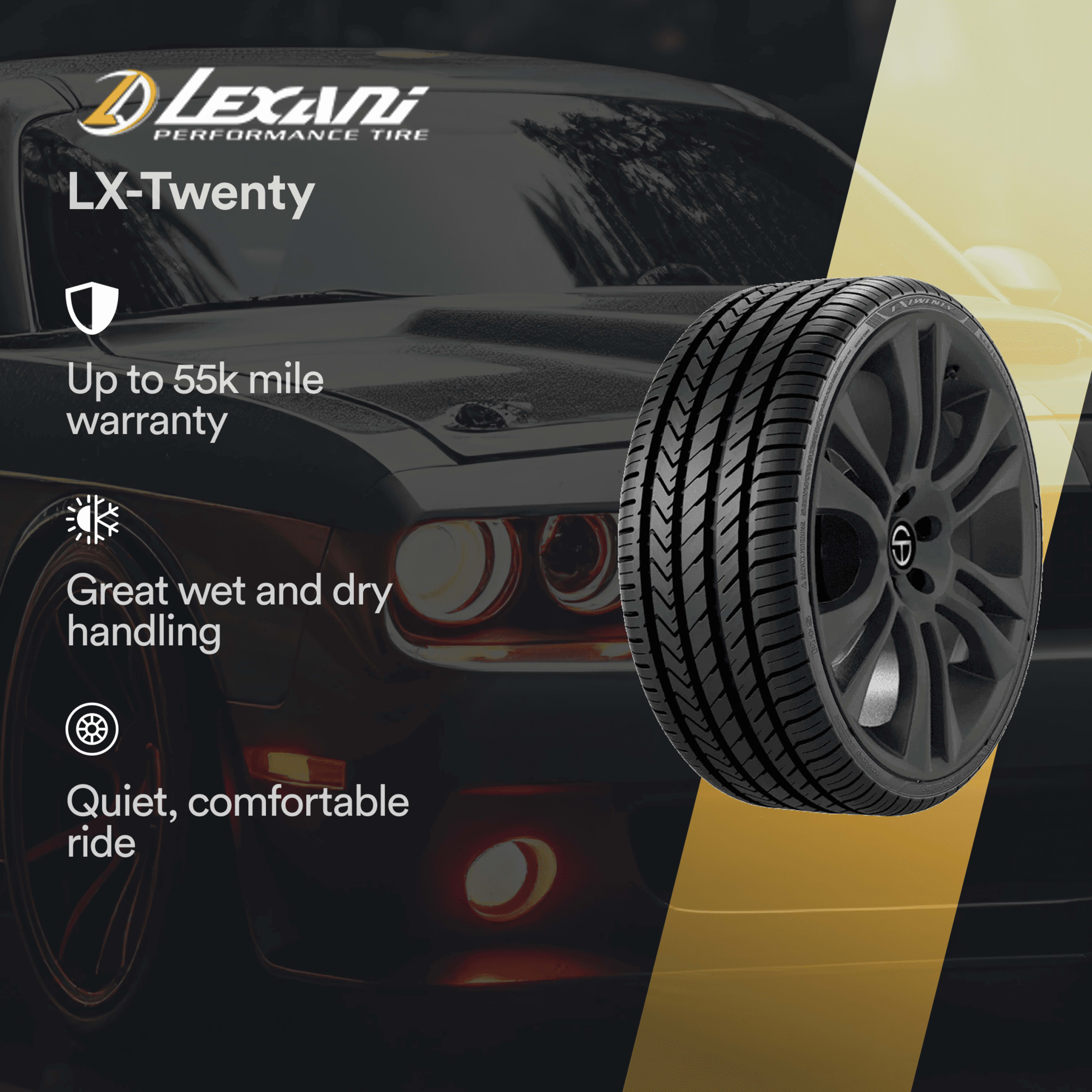Tire News & Information
Free shipping
Best price guarantee
Special pricing
Financing with Resolve
Easy returns

Tires are an essential component of any vehicle, providing the necessary traction, stability, and safety for a smooth ride. However, even the highest-quality tires can experience issues due to manufacturing defects, road hazards, or premature wear.
To protect consumers from the financial burden of unexpected tire problems, manufacturers offer various types of warranties. These warranties serve as a guarantee of the tire's quality and performance, giving vehicle owners peace of mind when investing in new tires.
Understanding the different types of tire warranties, their coverage, and limitations is crucial for making informed purchasing decisions and ensuring you get the most value out of your investment. In this article, we'll delve into the world of tire warranties, explaining how they work and what you need to know to take advantage of these protective measures.
What is a tire warranty?
A tire warranty is a manufacturer's promise to stand behind the quality and performance of their product. It is an assurance that the tires you purchase will be free from defects in materials and workmanship, and will perform as expected under normal driving conditions.
Most tire warranties last for a specific period, typically 4-6 years from the date of purchase, or until the tread wears down to a certain depth—whichever comes first. The warranty coverage begins when you purchase the tires or when your new vehicle is delivered, ensuring that you are protected from the moment you start using your tires.
Tire warranties are designed to give consumers confidence in their purchase and provide a safety net in case of premature wear or unexpected issues. By understanding the terms and conditions of your tire warranty, you can make the most of this valuable protection and ensure that your tires remain safe and reliable for years to come.
Types of Tire Warranties

Tread Life Warranty
A tread life warranty ensures that a tire will last for a specified number of miles. Should the tire wear out before reaching this mileage, a prorated credit is provided for a replacement. To claim this warranty, it is essential to have proof of purchase and evidence of regular tire maintenance, such as scheduled rotations. Meeting these requirements is key to utilizing the warranty effectively.
Road Hazard Warranty
This warranty covers damage from unforeseen road elements like nails, glass, or potholes. Offered as an optional add-on, it provides reassurance for drivers navigating debris-prone areas. The warranty often includes free tire repairs or a prorated replacement cost if the tire cannot be repaired—making it a practical choice for those concerned about everyday driving hazards.
Workmanship and Materials Warranty
This warranty safeguards against manufacturing defects in the tire. If a flaw is detected, you typically receive a free replacement within the first year or before 25% of the tread is worn. After that, the cost becomes prorated, allowing for a discounted price on a new tire. This warranty reflects the manufacturer's commitment to quality and materials.
Uniformity Warranty
Uniformity warranties address issues such as vibrations or ride disturbances due to manufacturing inconsistencies. This warranty generally applies during the initial stages of tread wear, specifically the first 1/32" to 2/32". It ensures any defects affecting vehicle performance are identified and corrected early, promoting a smoother driving experience.
Limitations and Exclusions
While tire warranties offer valuable protection, they come with specific limitations that are essential for consumers to understand. Coverage typically excludes damage resulting from improper care, such as neglecting regular tire maintenance. Ensuring your tires are in good condition is crucial to retaining warranty benefits.
Additionally, warranties often require documentation demonstrating adherence to proper tire care practices. This includes maintaining the correct tire pressure and performing routine rotations. These records confirm responsible tire use, a key condition for any warranty claim to be considered.
Another important aspect of tire warranties is their non-transferability. Only the original purchaser can benefit from the warranty, as it cannot be transferred if the tires or vehicle are sold. Tires that come as original equipment might have unique warranty terms distinct from aftermarket purchases. Being aware of these specific terms ensures effective navigation and utilization of your tire warranty.
How to Make a Warranty Claim
The process of filing a tire warranty claim involves a few clear steps. Start by reaching out directly to the place where you purchased the tires or the tire manufacturer. This initial step is key to getting the necessary information specific to your warranty claim.
When you make contact, be ready to provide important documents. This includes proof of your tire purchase and records of any maintenance work, such as regular rotations and pressure checks. These documents are vital as they demonstrate proper care of the tires, which supports your claim under the warranty terms.
A thorough inspection of the tire follows, conducted by experts to assess whether the issue qualifies for warranty coverage. They will look for any defects or problems that are included in the warranty's protection. If the claim is validated, you can expect a prorated replacement or refund based on the tire's remaining lifespan.
It’s crucial to be aware of the warranty’s specific mileage and time restrictions. These factors determine the validity of your warranty claim, ensuring it falls within the coverage period. Being mindful of these details helps you fully benefit from the warranty and effectively address any tire issues that arise.
Benefits of Tire Warranty Coverage
Tire warranty coverage acts as a crucial safeguard, offering reassurance for your tire investment. It helps manage the costs associated with unforeseen tire damage or premature wear, allowing you to address these issues without facing unexpectedly high expenses. This aspect of coverage is integral to tire ownership, providing a buffer against financial strain.
Furthermore, warranties promote responsible tire upkeep, which is essential for maintaining optimal tire performance and ensuring safety on the road. Adhering to maintenance guidelines specified in the warranty, such as conducting regular rotations and pressure checks, not only extends the lifespan of your tires but also enhances their dependability. This proactive care approach ensures you derive the full benefits of your warranty while contributing to a more reliable driving experience.
Beyond financial considerations, the assurance provided by tire warranties enables drivers to focus on the road with confidence. Knowing you have protection against potential tire issues fosters a sense of security, allowing you to concentrate on driving rather than being preoccupied with potential tire problems.
Tire warranties are an essential aspect of tire ownership, providing peace of mind and protection against unexpected issues. By understanding the different types of warranties, their coverage, and limitations, you can make informed decisions when purchasing and maintaining your tires. If you're in the market for new tires, shop for tires online and let us help you find the best deals while ensuring you're protected with comprehensive warranty coverage
Ready to find the perfect tires?
Search By